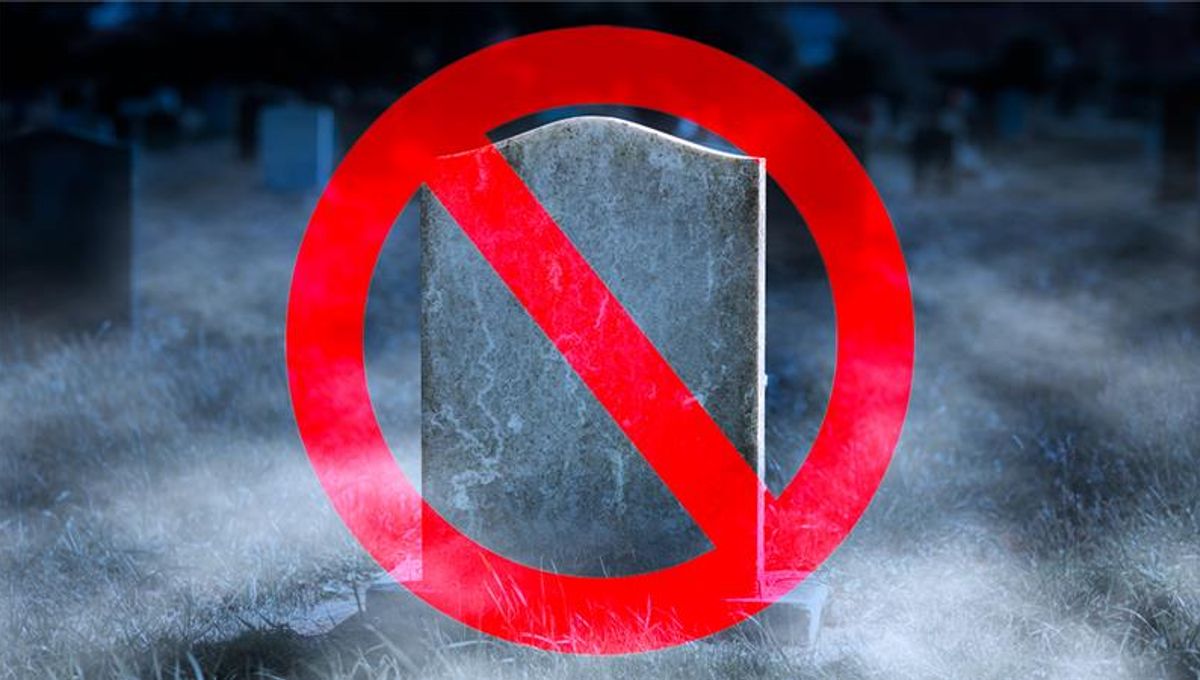
Have you heard that it’s illegal to die in the cold distant reaches of Svalbard, Norway? The reasoning is that, due to the permafrost, bodies laid to rest in this Arctic territory will not decompose and so present a biological risk for future generations. However, this is not really true, especially the part about dying being outlawed. Nevertheless, the myth has spread quite far and is often reported as fact. But this raises an obvious question: is there anywhere else on Earth where it actually is illegal to die?
The short answer is a kind of dubious shrug. Over the years, various places have “outlawed” dying, but the act has been less an effort to legally punish those unhelpful people who die (anyone), and more an effort to draw attention to some subtle political or social issue.
For instance, in August 2015, the mayor of the Italian hillside town of Sellia signed an ordinance that forbade people to get “ill within the municipality” and made it clear that they were not allowed to die there either. Anyone caught defying this law by not getting regular health checks could be fined €10 a year.
On the face of it, this is a ludicrous rule that demands the impossible, but the law was passed with the aim of promoting healthier lifestyles for local residents. The logic behind it was that Sellia was struggling with a shrinking population, and so the law was introduced to encourage citizens to take better care of their health or face higher taxation.
Similarly, in 2000 and 2008, two villages in France forbade their residents to die. In both instances, the local authorities could not get permission to expand their graveyards, so in protest, they decided to make the issue go away by discouraging death itself. The same tactic was adopted by the authorities of Biritiba Mirim, in Brazil in 2005, and Falciano del Massico, in Italy, in 2012.
As you can imagine, the unreasonable nature of these bylaws eventually resulted in them gaining permissions to expand their graveyards.
Then there’s the ban on dying for purity reasons. Although this is not something that is practiced too frequently these days, there are some historical instances where death has been forbidden for religious reasons.
In Ancient Greece, the island of Delos, now a UNESCO World Heritage site, was considered so sacred that efforts were taken to keep it free from death and birth – basically anything related to the messiness of human existence. In the 6th century BCE, the Athenian leader, Peisistratus, ordered the graves on the island to be dug up, and later, anyone who was likely to die or about to give birth was escorted off the island.
The same need to preserve sanctity influenced the history of the Japanese island of Itsukushima (now Miyajima), which is considered sacred in Shinto lore. For some time, the only people allowed to live on the island were Shinto priests and priestesses. If pilgrims visited, they were prohibited from dying or giving birth there, a rule that reflected Shinto ideas about pollution, blood, and decay. Contrary to what is often thought, this rule was actually abolished in 1868 (it is often cited as the start date of the law), but even today, burials and cremations are not allowed on the island.
What is clear from these examples is that the prohibition of death, when unrelated to religious rules, has all been an effort to challenge local issues around health or the availability of burial spaces. So while they may be absurd on the face of it, it is proof that sometimes the ridiculous can be very practical.
[H/T: The Guardian]
Source Link: Are There Really Places On Earth Where It Is Illegal To Die?